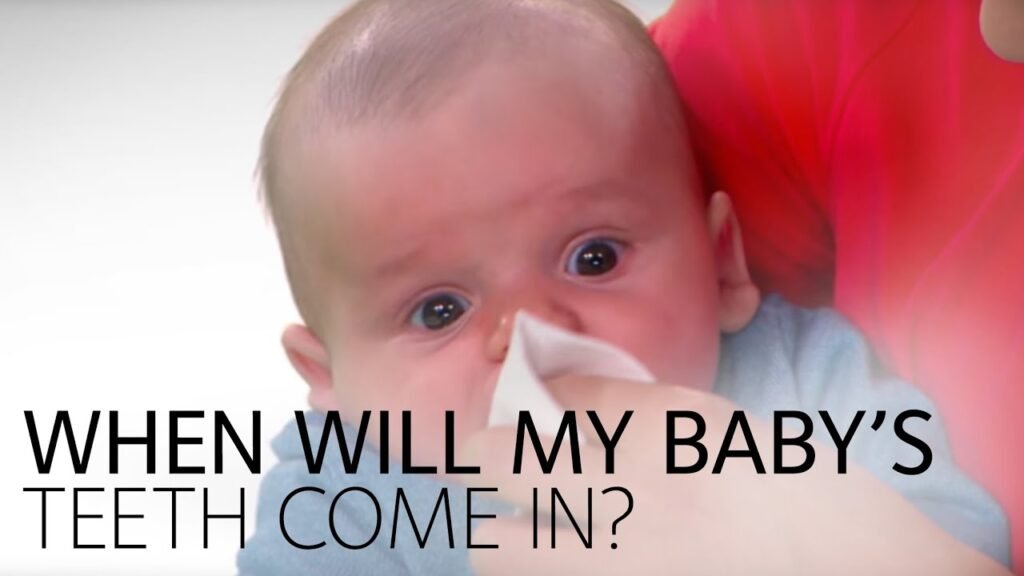Determining the Age of Baby Teeth: A Comprehensive Guide

Are you curious about when your child's baby teeth will start to appear? Understanding the age at which baby teeth typically emerge can help parents monitor their child's dental development and ensure proper oral hygiene practices. In this article, we will explore the age range at which baby teeth usually come in, along with helpful tips for caring for your child's oral health during this important stage of growth.
At what age do baby teeth come in?
Babies typically start teething around 4 to 7 months of age, with the first teeth to appear being the two bottom front teeth, known as the central incisors. While teething can begin as early as 3 months, it's most common for parents to notice the first tooth pushing through the gum line between 4 and 7 months.
At what age is it considered too late for teething?
Teething typically occurs in babies between the ages of 4 and 15 months. It is considered normal for some babies to experience delayed teething, which is not a cause for alarm until the child reaches 15 months of age. However, if a child has not begun teething by 18 months, it is recommended to seek advice from a pediatric dentist, according to the American Academy of Pediatrics.
While many babies may start teething on the earlier side of the spectrum, it is important to remember that each child develops at their own pace. The timeline for teething can vary, with some babies showing signs earlier and others later. As long as your child is meeting other developmental milestones, delayed teething is usually not a cause for concern.
If you have concerns about your baby's teething progression, it is always best to consult with a healthcare professional. A pediatric dentist can provide guidance and support if your child's teething seems significantly delayed, ensuring that any potential issues are addressed in a timely manner. Remember, every child is unique, and what is considered "late" teething for one baby may be perfectly normal for another.
Should a 1 year old have teeth?
It is completely normal for a 1-year-old to have teeth, with most children having between two and four teeth by this age. As children continue to grow, they will typically have all 20 of their baby teeth by around two and a half years old. While the timing may vary from child to child, it is important to monitor their dental development and seek guidance from a pediatric dentist if there are any concerns.
Deciphering the Timeline: Understanding Baby Teeth Development
Deciphering the timeline of baby teeth development is crucial for parents to ensure their child's dental health. Understanding the sequence in which baby teeth erupt and fall out can help parents anticipate potential issues and seek timely dental care. By familiarizing themselves with the typical milestones of baby teeth development, parents can better support their child's oral hygiene habits and overall dental well-being.
From the emergence of the first baby tooth to the arrival of permanent teeth, decoding the timeline of baby teeth development is a key aspect of pediatric dental care. Keeping track of when each tooth is expected to come in and fall out can aid parents in recognizing any deviations from the norm and seeking professional guidance when needed. By staying informed and proactive about their child's dental development, parents can play a vital role in promoting healthy teeth and gums for a lifetime.
Unveiling the Mystery: How to Determine the Age of Baby Teeth
Unveiling the mystery behind determining the age of baby teeth is a crucial aspect of pediatric dentistry. By examining the development of the teeth, dentists can accurately estimate a child's age and track their dental health progress. Factors such as eruption patterns, root formation, and wear patterns all play a role in determining the age of baby teeth. Understanding these indicators not only helps in proper dental care but also aids in identifying any potential developmental issues early on, ensuring a lifetime of healthy smiles for children.
A Parent's Handbook: Navigating the Age of Baby Teeth
As a parent, navigating the age of baby teeth can be both exciting and challenging. From teething pains to the first tooth fairy visit, there are many milestones to anticipate and prepare for. It's important to establish a good oral hygiene routine early on, including gentle brushing and regular dental check-ups. Understanding the stages of tooth development and knowing how to address common issues like teething discomfort can help make this journey smoother for both you and your child. Remember, each tooth that sprouts is a reminder of growth and development, so cherish these fleeting moments and embrace the joys of your child's changing smile.
In conclusion, understanding the age at which baby teeth typically fall out is important for parents to monitor their child's dental development. By knowing when to expect these changes, parents can be proactive in maintaining their child's oral health and addressing any concerns with their dentist. Ultimately, being informed about the timeline for baby teeth can help ensure a smooth transition to permanent teeth and promote a lifetime of good dental habits.